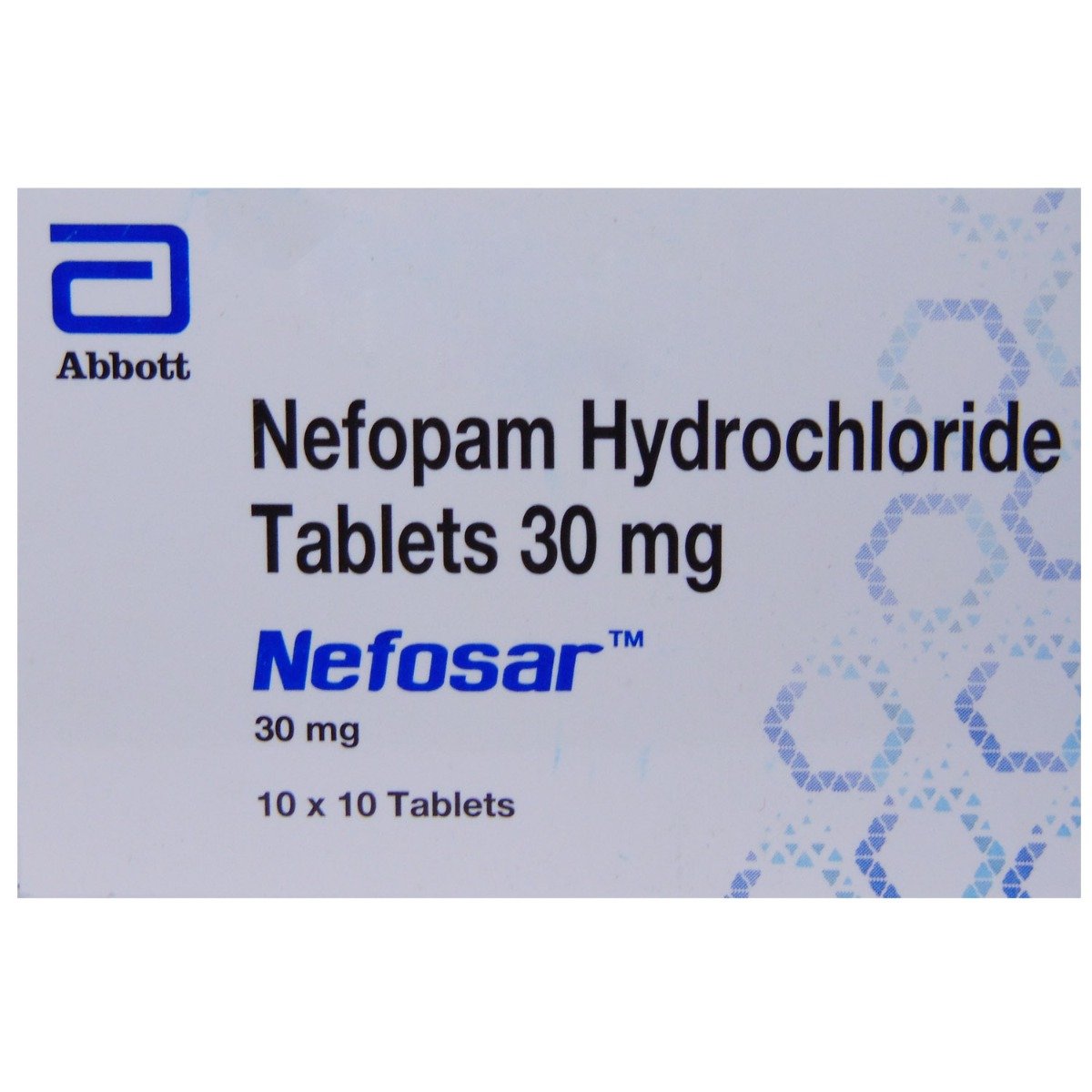Nefopam
About Nefopam
Nefopam belongs to the group of analgesics used short-term to relieve moderate to severe pain and inflammation. Nefopam finds practical use as a painkiller for muscular pain, joint pain, and pre or postoperative pain before and after surgery or dental procedure.
Nefopam contains Nefopam, which works by blocking pain signals from being transmitted to the brain and from being perceived by the brain.
Take Nefopam as prescribed. Nefopam may cause common side effects, such as nausea, dizziness and dry mouth. Most of these side effects do not require medical attention and will resolve gradually over time. However, you are advised to talk to your doctor if these side effects persist.
It is advisable to inform the doctor if you are allergic to any of the components of Nefopam. Consult your doctor if you are pregnant, planning to get pregnant or breastfeeding. Nefopam may cause dizziness, so drive only if you are alert. Avoid taking alcohol with Nefopam as it might lead to increased dizziness.
Uses of Nefopam
Medicinal Benefits
Nefopam is a non-steroidal anti-inflammatory drug (NSAID) used for short-term pain management. Nefopam finds application in pain relief before or post-surgery. It is also used temporarily to treat severe joint and muscle pain in diseases such as osteoarthritis and rheumatoid arthritis. It blocks pain signals, so the brain doesn’t perceive the severity of pain. Thus, Nefopam relieves the body of the sensation of pain.
Directions for Use
Storage
Side Effects of Nefopam
- Dizziness
- Dry mouth
- Nausea
Drug Warnings
Nefopam should not be used in case of any known allergy to any of the components or to NSAID’s in general. Do not take Nefopam if you have/had epilepsy/fits or if you are taking monoamine oxidase inhibitors (MAOI). Inform your doctor if you have severe liver/kidney problems, glaucoma, difficulty passing urine, or heart problems. Nefopam is not recommended for use in children below 12years, during pregnancy, and lactation. Nefopam may cause dizziness and drowsiness, therefore, avoid driving or operating machinery unless you are alert.
Drug Interactions
Drug-Drug Interactions: Nefopam may interact with monoamine oxidase inhibitors (phenelzine), tricyclic antidepressants (amitriptyline), benzodiazepines, sympathomimetic agents, anticholinergic drugs, and opioid drugs.
Drug-Food Interactions: No interactions found.
Drug-Disease Interactions: Inform your doctor if you have epilepsy, glaucoma, difficulty passing urine, liver, kidney, or heart problems.
Drug-Drug Interactions Checker List:
Safety Advice

Alcohol
unsafeYou are advised not to take alcohol with Nefopam as it can make you dizzier. Please consult your doctor if you have any concerns.

Pregnancy
unsafeNefopam is not recommended for use during pregnancy. Please consult your doctor if you have any concerns.

Breast Feeding
unsafeNefopam is not recommended for use during breastfeeding as it passes in breast milk. Please consult your doctor if you have any concerns.

Driving
cautionNefopam may cause dizziness and drowsiness, which may affect your ability to drive. Drive only if you are alert and focused.

Liver
cautionExercise caution before using Nefopam in case of established liver disease. Please consult your doctor to address any concerns.

Kidney
cautionExercise caution before using Nefopam in case of kidney disease. Please consult your doctor to address any concerns.

Children
unsafeNefopam is not recommended for children below 12 years of age.
Habit Forming
Diet & Lifestyle Advise
- Stay hydrated by drinking plenty of water.
- Invest in a balanced diet. Load up on lean meats, fruits, green leafy vegetables, nuts, oily fish etc. Limit your intake of sweets and sugars as these can worsen inflammation.
- Cut back on alcohol as this can have an adverse effect on pain states as well as the quality of your sleep.
- Try meditation and deep breathing to reduce overall stress and pain.
- Stop smoking as smoking is known to worsen pain conditions.
- Engage in mild physical exercise daily and keep your body active.
Patients Concern
Disease/Condition Glossary
Pain: Pain is a sensation that occurs in response to external injury, stress, or infection and travels as an impulse through body cells, producing an unpleasant feeling and alerting the body to act. Pain relief in pharmacological terms is called analgesia. Various neurotransmitters and their equilibrium are instrumental in producing pain sensations.
FAQs
Nefopam works by reducing the levels of prostaglandins (inflammatory markers) and relieving the body of inflammation and pain.
Nefopam is not indicated for the treatment of a headache. The causes of a headache can be varied. Please consult your doctor before use.
Avoid taking Nefopam if you are on treatment with antidepressants, such as monoamine oxidase inhibitors (MAOI's). Please consult your treating doctor if you have any concerns.
Nefopam may cause dry mouth. Limiting caffeine intake, avoiding smoking, drinking water regularly and chewing sugar-free gum/candy might stimulate saliva and prevent mouth drying.
Consult your doctor before taking Nefopam if you have high blood pressure, as Nefopam might cause a decrease in blood pressure.




